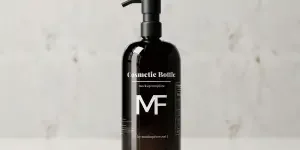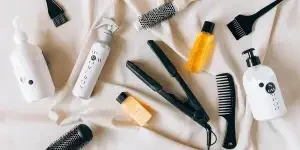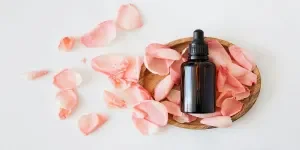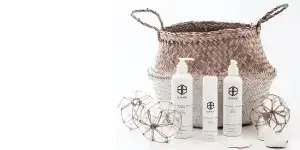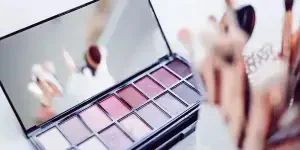In the ever-evolving world of skincare, retinol lotion has emerged as a standout product, captivating the attention of beauty enthusiasts and industry professionals alike. As we step into 2025, the demand for retinol-infused skincare solutions continues to soar, driven by its proven efficacy in combating signs of aging and enhancing skin texture. This guide delves into the intricacies of retinol lotion, exploring its market potential and the trends propelling its popularity.
Table of Contents:
– Understanding Retinol Lotion and Its Market Potential
– Exploring Popular Types of Retinol Lotions
– Addressing Consumer Pain Points with Retinol Lotions
– New and Innovative Retinol Lotion Products on the Market
– Wrapping Up: Key Takeaways for Sourcing Retinol Lotions
Understanding Retinol Lotion and Its Market Potential

What is Retinol Lotion and Why It’s Gaining Popularity
Retinol lotion, a derivative of vitamin A, is renowned for its remarkable ability to accelerate cell turnover and stimulate collagen production. This potent ingredient is celebrated for its anti-aging properties, making it a staple in the skincare routines of those seeking to diminish fine lines, wrinkles, and hyperpigmentation. The allure of retinol lies in its scientifically-backed benefits, which have been extensively documented in dermatological studies. As consumers become increasingly educated about skincare ingredients, the demand for retinol-based products has witnessed a significant uptick.
The market for retinol skincare products is poised for substantial growth. According to a professional report, the retinol skincare product market is projected to expand by USD 144.64 million between 2022 and 2027, with a compound annual growth rate (CAGR) of 4%. This growth is fueled by the increasing premiumization of skincare products, innovative product launches, and a heightened focus on multichannel marketing strategies. The versatility of retinol, available in various formulations such as creams, oils, and serums, further broadens its appeal across different consumer segments.
Social Media Trends and Hashtags Driving Demand
The influence of social media on consumer behavior cannot be overstated, particularly in the beauty and skincare industry. Platforms like Instagram, TikTok, and YouTube have become powerful vehicles for disseminating information and trends. Hashtags such as #RetinolResults, #SkincareRoutine, and #AntiAging have garnered millions of posts, showcasing before-and-after transformations and user testimonials. These visual endorsements play a pivotal role in driving consumer interest and trust in retinol products.
Moreover, the rise of skincare influencers and dermatologists sharing their expertise online has demystified the use of retinol, making it more accessible to a broader audience. The hashtag #DermatologistApproved, often associated with retinol products, adds a layer of credibility that resonates with consumers seeking professional validation. This digital word-of-mouth marketing has significantly contributed to the surge in demand for retinol lotions.
Aligning with Broader Beauty and Skincare Trends
The growing popularity of retinol lotion is not an isolated phenomenon but rather a reflection of broader trends within the beauty and skincare landscape. One such trend is the increasing consumer preference for scientifically-backed, results-driven products. As individuals become more discerning about their skincare choices, they gravitate towards ingredients with proven efficacy, and retinol fits this criterion perfectly.
Additionally, the emphasis on preventive skincare has gained momentum. Consumers are now more proactive in addressing skin concerns before they become pronounced, leading to a surge in demand for anti-aging products like retinol lotion. This shift towards preventive measures is further amplified by the aging millennial population, who are entering their prime spending years and are keen on maintaining youthful skin.
Sustainability is another critical trend shaping the beauty industry. Brands are increasingly adopting eco-friendly practices, from sustainable sourcing of ingredients to recyclable packaging. Retinol products that align with these values are likely to resonate more with environmentally-conscious consumers. The focus on clean beauty, which emphasizes transparency and the use of safe, non-toxic ingredients, also dovetails with the demand for high-quality retinol lotions.
In conclusion, the market potential for retinol lotion in 2025 is robust, driven by its proven benefits, social media influence, and alignment with prevailing beauty trends. As consumers continue to prioritize effective and sustainable skincare solutions, retinol lotion is well-positioned to remain a cornerstone of the beauty industry.
Exploring Popular Types of Retinol Lotions

Analyzing Ingredients: What Makes a Good Retinol Lotion
A good retinol lotion is defined by its ingredients, which play a crucial role in its effectiveness and consumer appeal. The primary ingredient, retinol, is a derivative of Vitamin A known for its anti-aging properties. However, the formulation of retinol is critical. For instance, encapsulated retinol, as seen in products like the Naturium Retinol Body Lotion, ensures stability and gradual release, minimizing irritation while maximizing efficacy. This encapsulation technology is particularly beneficial for sensitive skin types, providing a gentler yet effective treatment.
In addition to retinol, other ingredients enhance the lotion’s performance. Allantoin, for example, is often included to soothe and protect the skin, reducing the potential for redness and irritation. The inclusion of antioxidants such as Vitamin E and green tea extract can further protect the skin from environmental damage and enhance the overall anti-aging benefits. According to a professional report, the combination of these ingredients not only improves skin texture and tone but also supports the skin’s natural barrier, making the lotion more effective and appealing to a broader range of consumers.
Effectiveness and Consumer Feedback: What Buyers Need to Know
Effectiveness is a key consideration for business buyers when sourcing retinol lotions. Products like the Beauty Pie Youthbomb Body 360° Repair Concentrate have garnered positive consumer feedback for their ability to address visible signs of aging, such as wrinkles and sun damage. This product’s bioavailable YB-GLY-RETINOL Complex is particularly noted for its luxurious buttery formula that enhances skin texture and firmness.
Consumer feedback often highlights the importance of a product’s ability to deliver visible results without causing significant irritation. For instance, the Advanced Clinicals ‘Anti-Aging Face & Body Cream’ is praised for its blend of retinol and natural botanical ingredients, which provide comprehensive anti-aging benefits while maintaining a healthy skin barrier. This balance of effectiveness and gentleness is crucial for consumer satisfaction and repeat purchases.
Pros and Cons of Different Retinol Lotion Formulations
Different formulations of retinol lotions offer various benefits and drawbacks. Traditional retinol formulations are highly effective but can cause irritation, especially for those with sensitive skin. Encapsulated retinol, as used in the Naturium Retinol Body Lotion, offers a solution by providing a controlled release of retinol, reducing the risk of irritation while maintaining efficacy.
On the other hand, bio-retinol alternatives like bakuchiol, found in KORA Organics’ Plant Stem Cell Retinol Alternative Moisturizer, offer similar anti-aging benefits without the associated irritation. These formulations are ideal for consumers seeking gentler options. However, they may not be as potent as traditional retinol, which could be a drawback for those seeking more dramatic results.
Addressing Consumer Pain Points with Retinol Lotions

Common Issues and How to Solve Them
One of the most common issues with retinol lotions is skin irritation, which can deter consumers from continued use. Products like the First Aid Beauty’s 0.3% Retinol Complex Serum with Peptides address this by incorporating soothing ingredients such as squalane and ceramides. These ingredients help to strengthen the skin’s moisture barrier, reducing the likelihood of irritation and enhancing overall skin health.
Another common issue is the initial purging phase, where the skin may break out before showing improvement. Educating consumers about this phase and providing products that include anti-inflammatory ingredients can help mitigate this concern. For example, the inclusion of green tea polyphenols in HH Science’s Retinol Forte Plus Smoothing Serum provides soothing benefits that can help manage this initial reaction.
Innovations in Retinol Lotion to Enhance User Experience
Innovations in retinol lotions are continually emerging to enhance user experience. The development of retinol-infused water creams, such as Elizabeth Arden’s Retinol + HPR Ceramide Rapid Skin Renewing Water Cream, offers a unique solution. These formulations provide the benefits of retinol without the typical irritation, thanks to their whipped, easily absorbed texture. This innovation caters to consumers who desire the anti-aging benefits of retinol but have previously experienced discomfort.
Another innovation is the use of encapsulated retinoid technology, as seen in Go-To’s Very Amazing Retinal serum. This technology allows for a more controlled release of retinol, reducing irritation and making the product suitable for sensitive skin. Additionally, the incorporation of plant-based active ingredients like orobanche offers natural solutions for skin plumping and smoothing, further enhancing the user experience.
Key Factors to Consider When Sourcing Retinol Lotions
When sourcing retinol lotions, business buyers must consider several key factors. Ingredient safety is paramount, as products must be free from harmful chemicals and allergens. The Naturium Retinol Body Lotion, for example, is formulated without parabens, phthalates, and other potentially harmful substances, making it a safe choice for a wide range of consumers.
Packaging stability is another critical factor. Products like the Software Update by Soft Services use airless pump packaging to preserve the integrity of the ingredients, ensuring that the retinol remains effective over time. This type of packaging also supports sustainability efforts, as it is fully recyclable without the need for disassembly.
Adherence to local regulatory standards is essential to ensure that the products can be sold in various markets. Business buyers should verify that the retinol lotions they source comply with the regulations in their target markets, including ingredient restrictions and labeling requirements.
New and Innovative Retinol Lotion Products on the Market

Breakthrough Formulations and Technologies
The skincare industry is witnessing a surge in breakthrough formulations and technologies in retinol lotions. One notable example is the encapsulated retinaldehyde used in Medik8’s Crystal Retinal 24. This next-generation vitamin A molecule works up to 11 times faster than traditional retinol, offering accelerated results in improving skin texture and reducing fine lines. The inclusion of hyaluronic acid and Vitamin E further enhances the product’s effectiveness by ensuring the skin remains hydrated and nourished.
Another innovative product is the Clinique Smart Clinical Repair AM/PM Retinoid Balm. This dual-use balm is designed for both morning and night application, providing immediate plumping effects on fine lines and long-term benefits for deeper wrinkles. Its stick format allows for easy, on-the-go reapplication, catering to the needs of busy consumers.
Emerging Brands and Their Unique Offerings
Emerging brands are making significant strides in the retinol lotion market with unique offerings. Bonjou Beauty’s Rejuvinol, for instance, emphasizes the use of Babchi Oil, a natural retinol alternative celebrated in Eastern medicine. This organic retinol serum combines Babchi Oil with other certified organic ingredients to deliver comprehensive skincare benefits without irritating the skin. This approach appeals to consumers seeking clean and sustainable beauty products.
Another brand making waves is Mantle with its Body Retinoil. This product integrates face-grade retinoids into body care, addressing the need for effective full-body skincare solutions. The inclusion of high-performing ingredients like bakuchiol and broccoli seed oil further enhances the product’s appeal by offering multiple skin benefits in one formulation.
Future Trends in Retinol Lotion Development
The future of retinol lotion development is poised to focus on enhancing efficacy while minimizing irritation. The trend towards encapsulated retinoid technology is likely to continue, as it offers a controlled release of retinol, reducing the risk of irritation. Additionally, the incorporation of natural and plant-based ingredients will remain a priority, catering to the growing demand for clean and sustainable beauty products.
Another emerging trend is the development of retinol skincare supplements, such as Vivid’s Retinol Soft Gels. These supplements support skin health from within, offering a holistic approach to anti-aging. This trend reflects a broader shift towards integrating skincare with overall wellness, providing consumers with comprehensive solutions for maintaining youthful and healthy skin.
Wrapping Up: Key Takeaways for Sourcing Retinol Lotions

In conclusion, sourcing retinol lotions requires a thorough understanding of ingredient formulations, consumer preferences, and market trends. Business buyers should prioritize products that offer effective anti-aging benefits while minimizing irritation, such as those with encapsulated retinol or natural alternatives like bakuchiol. Innovations in packaging and adherence to regulatory standards are also critical factors to consider. By staying informed about the latest developments and emerging brands, business buyers can make well-informed decisions that meet the needs of their consumers and drive market success.
